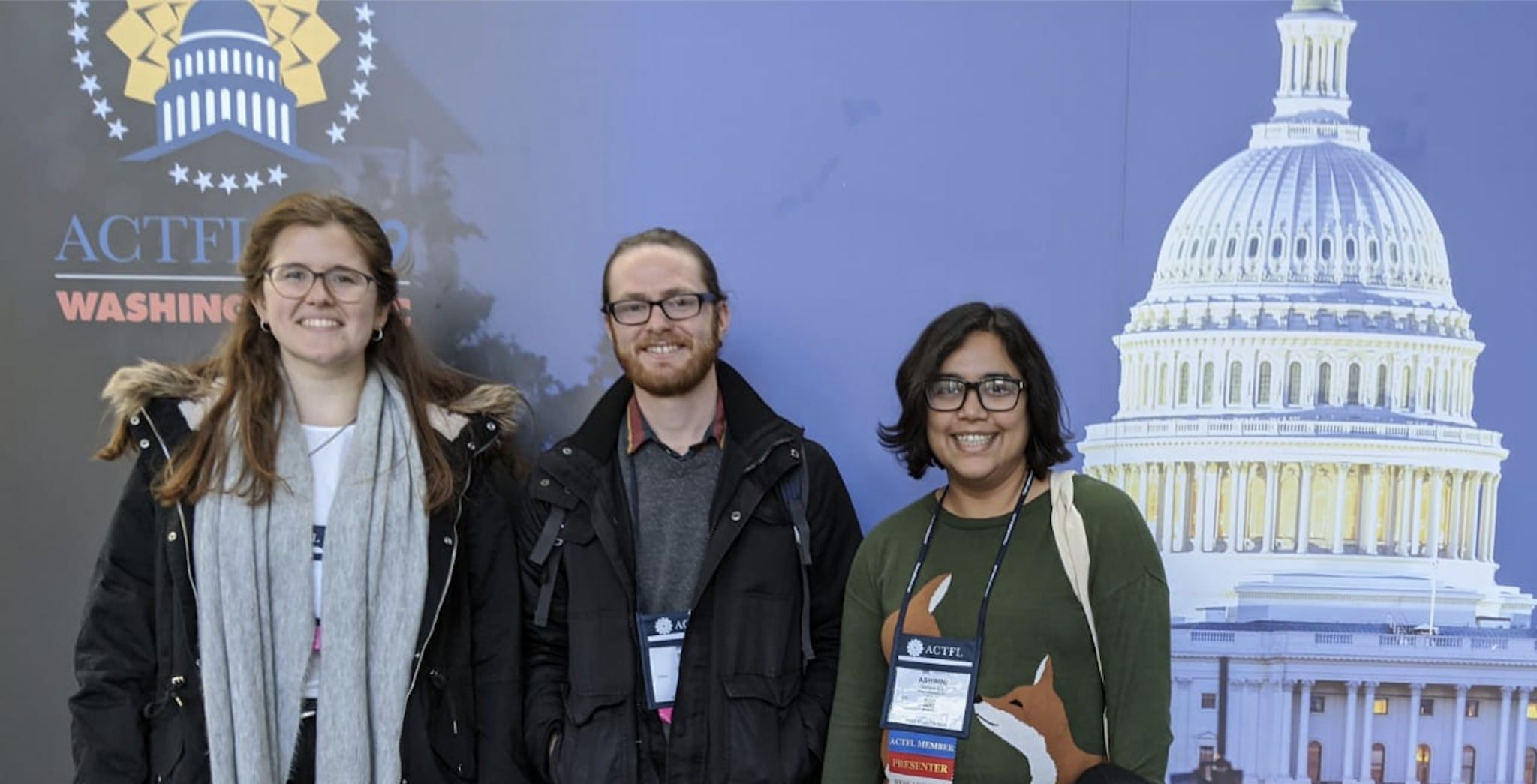
Carolina Bonansea, Isaiah O’Bryon and Dr. Ashwini Ganeshan pose at the 2019 American Council for the Teaching of Foreign Languages Annual Convention and World Languages Expo.
Dr. Ashwini Ganeshan, Assistant Professor of Spanish in Modern Languages, and Carolina Bonansea and Isaiah O’Bryon, graduate students pursuing a master’s in Spanish, attended the 2019 American Council for the Teaching of Foreign Languages (ACTFL) Annual Convention and World Languages Expo in Washington DC from November 22–24. They attended several hands-on workshops and presentations on current and effective teaching and learning practices for foreign language educators.
The ACTFL annual convention is the biggest national convention in the U.S. for language educators and administrators from elementary through graduate education, as well as government and industry. The organization boasts a membership of over 12,500 individuals. Since its founding in 1967, the ACTFL has played a leadership role in the creation of national standards, and it focuses on issues that are critical to the growth of both the profession and the individual teacher.
At the conference, Ganeshan also presented the results of ongoing classroom research that she is conducting in a paper titled Explicit pragmatic instruction: Impact on students’ self-confidence. The research project investigates the impact of explicit pragmatic instruction through data collected in class using in-class reflections. The project focuses on three areas: learners’ self-confidence, metacognition and self-efficacy.
Pragmatic competence, which is addressed increasingly in the language classroom, benefits learners in their everyday native language (L1) and second language (L2) interactions. Research on explicit pragmatic instruction has shown favorable effects on learners’ pragmatic competence (Koike & Pearson 2005; Félix-Brasdefer 2008; Takahashi 2010; Taguchi 2011; Alcón Soler & Guzmán Pitarch 2010, 2013). However, the impact on self-confidence, metacognition and self-efficacy are not known. In other research, self-confidence, metacognition and self-efficacy have been shown to be the factors that most predict successful in language learning (Bandura 1986; Graham & Weiner 1996; Wong 2005; Vandergrift 2003, Raoofi et al. 2013). Results show that all learners reported significant improvement in the three areas above. The pedagogical implications are that explicitly teaching pragmatic competence improves learners’ self-perception and allows the pursuit of successful language learning.



















Comments